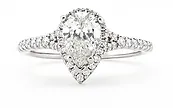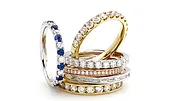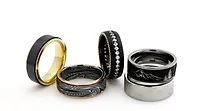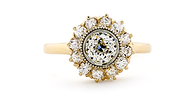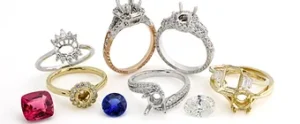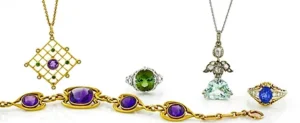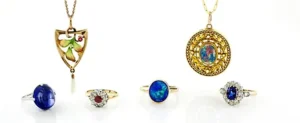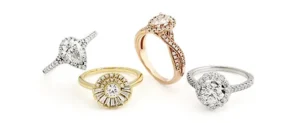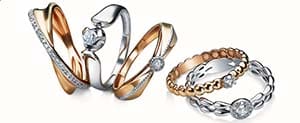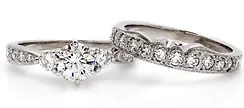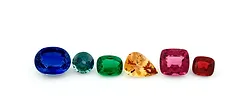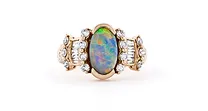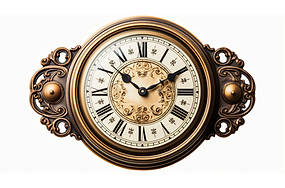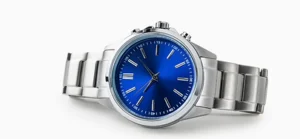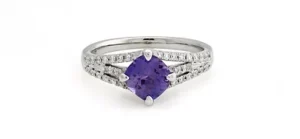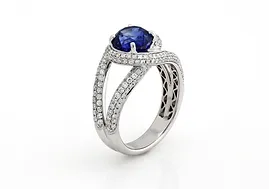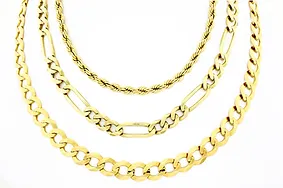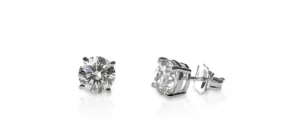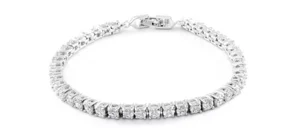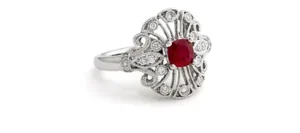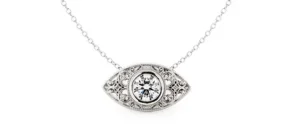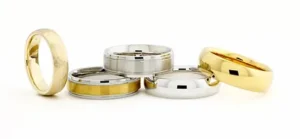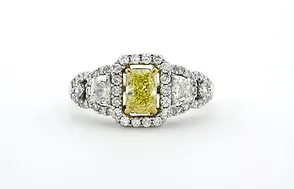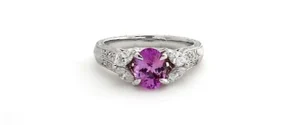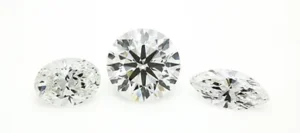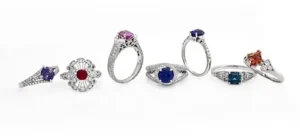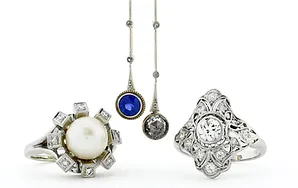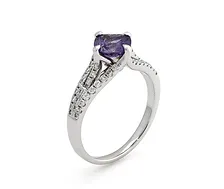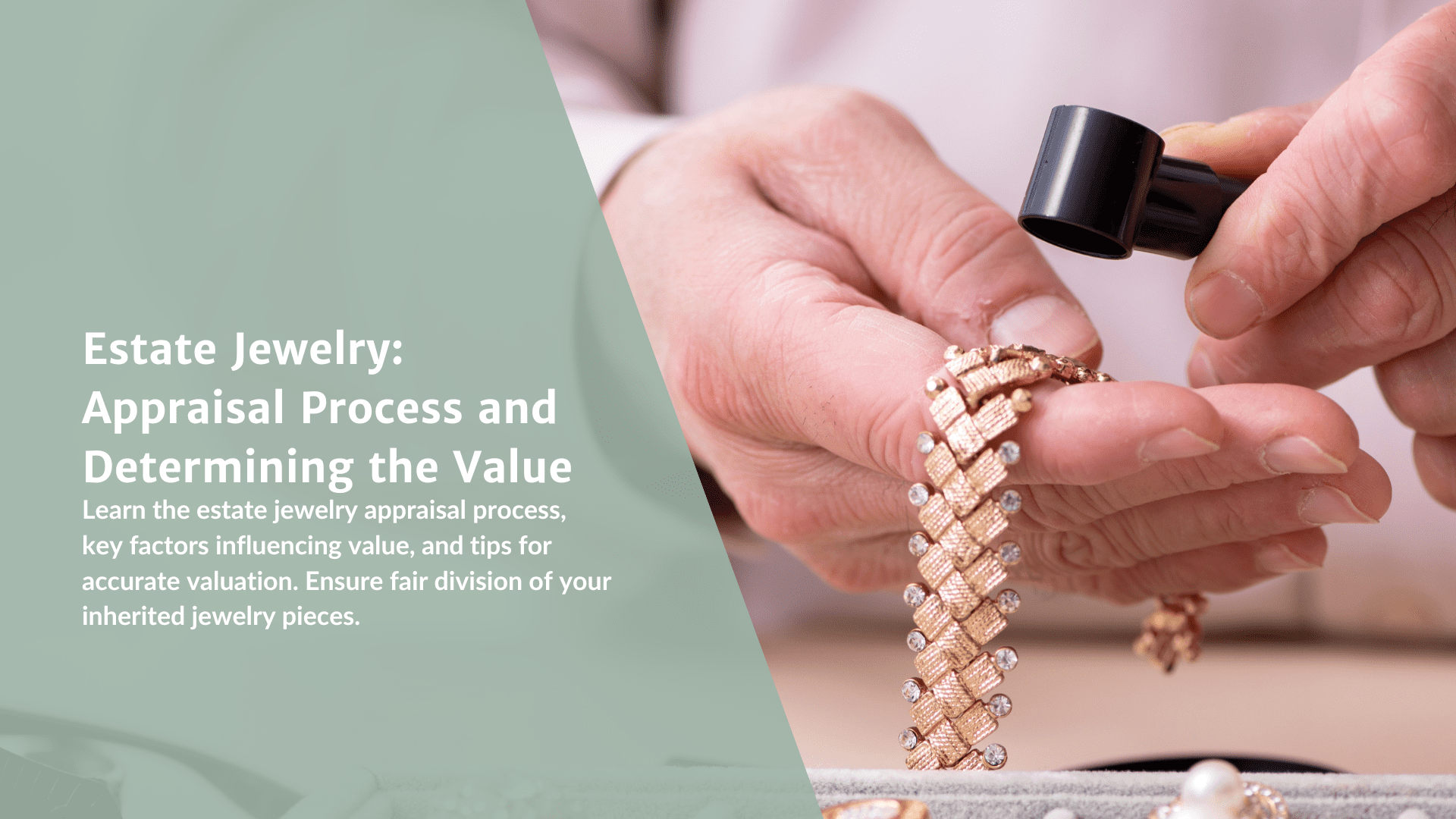Inheriting estate jewelry can be a bittersweet experience. These pieces often come with deep sentimental value and a rich history, making them priceless in the eyes of the beholder. However, understanding their actual market value requires a professional appraisal. If you’re looking for the phrase “estate jewelry appraisal near me,” this guide will walk you through the appraisal process and how the value of estate jewelry is determined.
The Importance of Estate Jewelry Appraisal
Appraising estate jewelry is crucial for several reasons. Whether you need the appraisal for insurance purposes, estate planning, or selling the pieces, knowing their value is essential. An appraisal provides a detailed description of the item and an assessment of its market value, helping you make informed decisions about your inherited jewelry.
Understanding Estate Jewelry
Estate jewelry refers to previously owned heirloom jewelry, often passed down through generations. These pieces can range from antique items to more contemporary designs. The value of estate jewelry can be influenced by its age, rarity, condition, and historical significance.
Key Characteristics of Estate Jewelry:
- Age: Typically, estate jewelry is at least 50 years old, but it can also include more recent pieces that hold significant value.
- Rarity: Unique designs, limited editions, or pieces by renowned designers can significantly increase the value.
- Condition: Well-maintained jewelry with minimal wear and tear is usually more valuable.
- Historical Significance: Items with a notable provenance or connection to historical events or figures can add to their worth.
The Estate Jewelry Appraisal Process
The process of appraising estate jewelry involves several steps, each critical to determining the accurate value of the piece. Here’s an overview of the typical appraisal process:
1. Finding a Qualified Appraiser
The first step is to find a qualified appraiser with expertise in estate jewelry. Look for professionals who are accredited by recognized organizations such as the Gemological Institute of America (GIA) or the American Society of Appraisers (ASA). Most importantly, ensure the appraiser has a good reputation and extensive experience in evaluating estate jewelry.
2. Initial Consultation
During the initial consultation, the appraiser will ask about the history and background of the jewelry. They may inquire about how you acquired the piece and any known details about its origin and previous owners. This information helps provide context and can influence the final appraisal.
3. Detailed Examination
The appraiser will conduct a thorough examination of the jewelry. This includes inspecting the following elements:
- Materials: Identifying the type of metals, gemstones, and other materials used.
- Craftsmanship: Assessing the quality of workmanship, including setting and finishing.
- Condition: Checking for any damage, repairs, or signs of wear and tear.
- Marks and Signatures: Looking for maker’s marks, hallmarks, or signatures that indicate the piece’s origin and authenticity.
4. Authentication and Testing
Authentication involves verifying the authenticity of the materials and the jewelry itself. This may include:
- Gemstone Testing: Using specialized tools to confirm the type, quality, and authenticity of gemstones.
- Metal Testing: Conducting tests to determine the purity and type of metals used.
- Documentation: Reviewing any accompanying documentation, such as original receipts, certificates, or previous appraisals.
5. Market Research
To determine the value of estate jewelry, the appraiser will research current market trends and comparable sales. This involves:
- Auction Records: Reviewing past auction results for similar pieces.
- Retail Prices: Comparing prices of similar items available in retail stores and online marketplaces.
- Market Trends: Analyzing current demand and trends in the jewelry market.
6. Valuation Report
After completing the examination and research, the appraiser will compile a detailed valuation report. This report includes:
- Description: A comprehensive description of the jewelry, including materials, dimensions, and notable features.
- Photographs: High-quality images of the piece from various angles.
- Value Assessment: An assessment of the item’s market value based on the appraisal findings.
- Appraiser’s Credentials: Information about the appraiser’s qualifications and accreditation.
Factors Influencing the Value of Estate Jewelry
Several factors influence the value of estate jewelry. Understanding these factors can provide insight into how appraisers determine the worth of your pieces.
1. Quality of Materials
The quality and type of materials used in the jewelry significantly impact its value. Higher-quality metals (such as platinum or 18k gold) and high-grade gemstones (such as diamonds, sapphires, or emeralds) typically increase the value.
2. Craftsmanship
The craftsmanship and design of the piece play a crucial role in its valuation. Expertly crafted jewelry with intricate designs and flawless execution is often more valuable.
3. Condition
The overall condition of the jewelry affects its market value. Pieces in excellent condition with minimal signs of wear are generally more desirable. Any damage, repairs, or alterations can decrease the value.
4. Provenance
Provenance refers to the documented history of the jewelry. Items with a well-documented history, especially those linked to notable events or figures, can command higher prices.
5. Rarity and Demand
Rarity and demand also influence the value. Unique designs, limited editions, and pieces by renowned designers or brands can significantly increase the worth. Additionally, current market trends and consumer demand for specific styles or periods can impact the value.
Why Regular Appraisals Are Important
Regular appraisals are essential for maintaining accurate records of your estate jewelry’s value. Market conditions and trends can change, affecting the worth of your pieces. It’s recommended to have your jewelry appraised every few years or whenever significant changes occur, such as alterations or repairs.
Benefits of Regular Appraisals:
- Insurance: Ensures your insurance coverage reflects the current market value of your jewelry.
- Estate Planning: Provides an accurate valuation for estate planning and distribution purposes.
- Resale Value: This helps you understand the resale value if you decide to sell the pieces.
Get the Most Accurate Appraisal for Your Estate Jewelry
The key here is that understanding the estate jewelry appraisal process and the factors that influence value is essential for making informed decisions about your inherited pieces. By working with a qualified appraiser, you can ensure an accurate and reliable valuation that reflects the true worth of your jewelry.
If you’re searching for “estate jewelry appraisal near me,” contact FWC Jewelers in Seattle. Our experienced appraisers specialize in estate jewelry and are dedicated to providing accurate and thorough valuations. Schedule your appraisal today and discover the true value of your treasured pieces.
FAQs: Estate Jewelry Appraisal
How do I find out how much my jewelry is worth?
What should a jewelry appraisal include?
How to determine fair market value of jewelry?
How to divide estate jewelry fairly?


